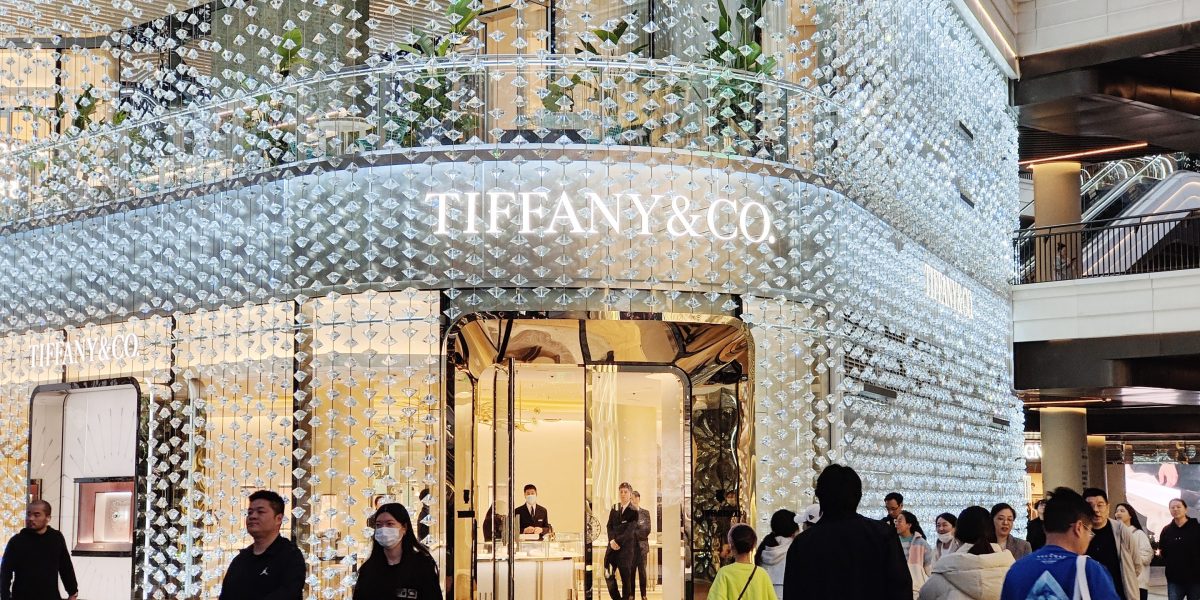

Tiffany & Co., LVMH’s leading jewelry maker, is planning to downsize a flagship store of more than 12,000 square feet in Shanghai, people familiar with the matter said, as sales of luxury brands plunge in the world’s second-largest economy.
Tiffany, which opened the two-floor store in Shanghai’s Hong Kong Plaza in a high-profile ceremony in late 2019, has decided to give up about half of the space, said the people, asking not to be identified because the deal is private. The brand will vacate the space later this month, the people said, and the landlord is already in talks with potential new tenants.
Both Tiffany and Lai Sun Group, which controls the high-end mall’s landlord, Lai Fung Holdings Ltd., didn’t immediately respond to requests for comment.
Tiffany’s pullback from China’s finance hub highlights the increasingly challenging business environment that global luxury giants have to navigate during an economic slowdown and a property market slump. Shoppers in the country are turning more price-sensitive, looking for bargains either in the gray market or overseas, such as Japan where the currency is weak. That’s triggered significant sales dips for high-end labels, curbing growth and adding pressure to profit margins.
LVMH’s watches and jewelry segment saw its revenue fall 3% in the first half of this year from the year before, making it one of the worst-performing sectors. Profit from recurring operations for this segment fell 19%.
Tiffany also asked Lai Fung to lower rent for its Shanghai flagship, one of the people familiar said.
The store, located in Shanghai’s core business and shopping district, features Tiffany’s first Blue Box Cafe in China which is also its third in the world. The store is currently among the brand’s largest in Asia. The cafe will remain after the downsizing, the people said.
The 187-year-old brand has been missing LVMH’s ambitious sales targets after the luxury empire of billionaire Bernard Arnault acquired the jewelry seller in 2021. Tiffany has also seen employee departures recently due to lower commissions than before, with some defecting to competitors and taking some of their loyal clients with them, Bloomberg News reported earlier this year.
The brand is further squeezed by rivals, losing market share to companies including Cie Financiere Richemont SA’s Cartier.
In our new special issue, a Wall Street legend gets a radical makeover, a tale of crypto iniquity, misbehaving poultry royalty, and more.
Read the stories.














